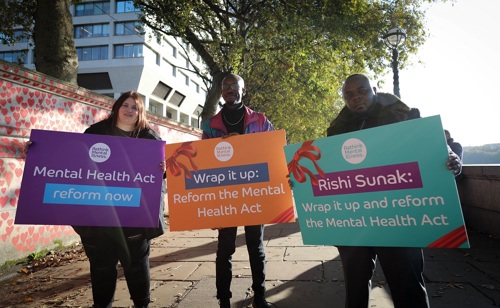
The Campaign So Far
The Mental Health Act is a critical piece of legislation that governs how people severely affected by mental illness can be treated, including when they are detained in hospital and/or treated against their will.
For Rethink Mental Illness, the reform of the Mental Health Act isn’t just the culmination of several years of campaigning, research, and working with our friends across the mental health sector. It’s also the beginning of a transition towards meaningful change in the care and treatment of people living with severe mental illness who are detained under the act.
After years of campaigning, the new Mental Health Bill was introduced to Parliament in November 2024. This is a huge step towards modernising the dated laws that dictate what happens when someone is detained under the Mental Health Act.
Read on for a timeline for the key milestones of our campaign for a new Mental Health Act.
